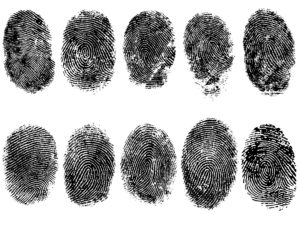Anyone with a common first and last name has probably run into an issue somewhere along the line with name-based background checks. Even within the context of where a person grew up or spent time, there is a possibility of, say, multiple “John Smiths” in Houston, Texas. It only makes sense that people want to be able to distinguish between individuals who have the same name on background checks.
The alternative that is occasionally presented is the concept of a fingerprint background check. At first, this might appear attractive for its main advantage: false-positives on fingerprint background checks are nearly impossible. However, the drawbacks of fingerprint background checks mean that they are appropriate for far fewer contexts than you might think.
Crucial Limitations of Fingerprint Background Checks
The first limitation of fingerprint background checks has to do with the contexts in which a person’s fingerprints are taken. If you need information like background employment verification or education verification, a fingerprint background check will not help you: prints are typically taken in the context of an arrest.
The other issue is that fingerprints are taken at the time of arrest and are not always linked to a data set that contains the actual results of a trial. A person who was arrested and fingerprinted could have been acquitted or could have had their case thrown out—and the fingerprint records would not give you that information. At CNet Technologies, we always advise HR managers to avoid the inclusion of non-conviction records during the hiring process. If you’re uncertain, seek competent legal counsel.
Another limitation is that treating fingerprint background checks as a “gold standard” over name-based background checks is somewhat misleading. Name-based background checks may turn up false-positive material. Still, an experienced, thorough background check company will be able to flag things that seem like they belong to someone else.
If you have verification of employment on one side of the country and this criminal record ping comes from the other, there is a reason to suspect a false positive. Between middle initials, verification of various aspects of a person’s background, and other historical markers, it is easier to weed out false-positives than you might think—resulting in a lowered need for the supposed benefits of a fingerprint background check.
Industry Restrictions on Fingerprint Background Checks
There are still contexts when a fingerprint background check is useful, but the window is narrow and not widely applicable to most companies. The first place you might see this method used is in industries—especially related to security—where it is legally mandated by the government that companies must run fingerprint background checks.
These are most useful in combination with a name-based background check for cross-referencing. In these industries, the slight possibility that someone has already been arrested—for, say, theft—is a significant issue when hiring someone with access to expensive equipment or other valuables. Fingerprinting has become especially important when hiring employees for, say, a school district: there’s nothing more precious than protecting our nation’s children.
In these specific scenarios, fingerprint background checks can be useful in removing false positives from name-based background checks. Hiring managers for schools can’t afford to be wrong when trying to separate a name from potential convictions—especially when that name is common. When it comes to government hiring, fingerprint records can establish that a potential candidate hasn’t been arrested at all.
This information can sometimes even reveal persons who are operating under a fake name—though few applicants will stick around if they are asked to be fingerprinted and know that it could reveal their secret.
Finally, fingerprint background checks can be useful for stringent government hiring policies if the main issue you want to resolve is that of arrests—such as if a candidate claims he or she has never been arrested—and you are concerned that he or she is lying.
Remember that a fingerprint background check won’t always turn up convictions—or even outcomes of the arrests. When it comes to your hiring practices, limited fingerprint background checks take a backseat to proven strategies that work.

Name-Based Background Checks Are the Gold Standard
The uniqueness of fingerprints does cause many people to believe that fingerprint background checks will offer them something that a name-based background check cannot. However, employment verification, education verification, and verified residences can all provide powerful clues when there is an ambiguous name that might belong to various people.
The fingerprint background check provides its most useful results when someone’s arrest record is the essential point of verification—and when the industry insists on these background checks. It is possible that, in the future, fingerprints will be linked to other sources of personal data. However, until they are, these background checks are useful only in limited circumstances.
When you need excellent, reliable background screening, CNet Technologies can help you navigate the available offerings to reach the services you need! Don’t waste your hiring time on testing that might not be relevant to your industry: let us help place you with the right screening techniques to match your needs!





